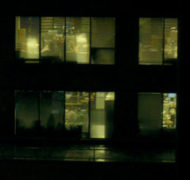What The Office Teaches Christians About the Workplace
Blog / Produced by The High Calling
The finale of “The Office” had me laughing and even close to shedding a tear. For nine seasons, we watched as a PBS documentary crew filmed a bunch of people working in the Scranton office of the Dunder Miflin paper company. As we peered into the lives of these ordinary office workers, we could identify with them from our own office experiences.
We could relate to having a boss that is so narcissistic that it makes everyone miserable. Whether he would say things completely inappropriate (“That’s what she said”), or do something completely awkward, Michael Scott made us either laugh or uncomfortably squirm in our seats. Who can forget when he initiated “Diversity Day?” To show how much he “understands” race issues, Michael spoke to Kelly with an over-the-top stereotyped Indian accent, which earned him a deserved slap in the face. Michael’s response? He turned to the rest of the office and said, “Now she knows what it’s like to be a minority!”
We could also relate to the office romance between Pam and Jim. As the film crew documented the goings-on in the office, we could see the two falling in love but unable to make the necessary move to start a relationship. Even after the two finally kiss, we were frustrated as obstacles continued to get in the way of their romance. We were genuinely happy as they became engaged and finally married.
Speaking of Jim, perhaps the most memorable moments of the show were when he would prank his co-worker Dwight. Dwight’s annoying idiosyncrasies could have driven Jim mad, but instead, Jim decided to make the most of it by pranking the guy. From when Jim placed Dwight’s stapler in a Jell-O mold to when Jim came to work dressed as Dwight and mockingly imitated him (“Bears, Beets, Battlestar Galactica”), to when Dwight stumbled upon a long-lost prank that Jim created to make Dwight think that The Holy Grail was hidden at Dunder Miflin (see below), we laughed at these office shenanigans until it hurt.
Certainly the crazy scenarios, wise cracks and awkward situations were amazing bits of comedic brilliance, but what made this show excellent was that it was about the people. We got to know the characters. We came to care for them. The American version of The Office changed the formula of the original British version.
“The original ‘Office,’ with its endless shots of paper-stacked desks and droning copy machines viewed the workplace as fundamentally soul-sucking, the place where one ran out the clock on life, molested by monotony, unchosen colleagues, and bosses like Ricky Gervais’s David Brent, a man so keen to be recognized he would do any embarrassing, inappropriate, cruel, or disrespectful thing to seem cool,” wrote Willa Paskin recently at Salon. “Steve Carell’s Michael Scott was re-envisioned as buffoon motivated not by the desire to be cool, but a desire to be loved.”
When Michael Scott finally found a relationship with a woman with whom he finally found mutual love, we were genuinely glad for him. When, in the final episode, Jim’s last prank on Dwight was to arrange for Michael to come to Dwight’s wedding, we saw the love that these men have for each other—Dwight’s love for Michael as he is so happy to see him and Jim looking at the camera and saying, “Best. Prank. Ever.”
In the final episode, we saw how all these office dwellers genuinely cared for each other. We realize that it is at the workplace that many of our most significant relationships are forged. It is at the workplace where we most often seek meaning for our daily tasks and pursue friendships that we hope can be genuine.
There are still some Christians that do not see the significance of the workplace. They have been told, either explicitly or implicitly, that what really matters is what goes on at church or in the mission field. They say that we should be careful of putting a priority on our work and be wary of those non-Christians in our workplaces. There are yet other Christians that are convinced that unless they radically plunge into missions or use their work skills in some ministry that they are some sort of second-class Christian that God looks down upon.
But it is in “The Office” (or the factory, or the clinic, or the school, or the restaurant, etc.) that we are called to work for God’s glory, to do good works, to love our neighbors, to forge real friendships, to serve others, and to show people what it’s like to have Jesus Christ in our lives.
Want to use your skills in ministry? Want to connect with people and help them to discover Christ? Want to serve people? Want to be in the mission field?
You’re already there.
Image by Salty Bear. Used with permission. Sourced via Flickr.
Post by Bob Robinson, Faith Editor for The High Calling and Executive Director of The Center to Reintegrate Faith, Life, and Vocations. He can be found on Twitter at @re_integrate.





